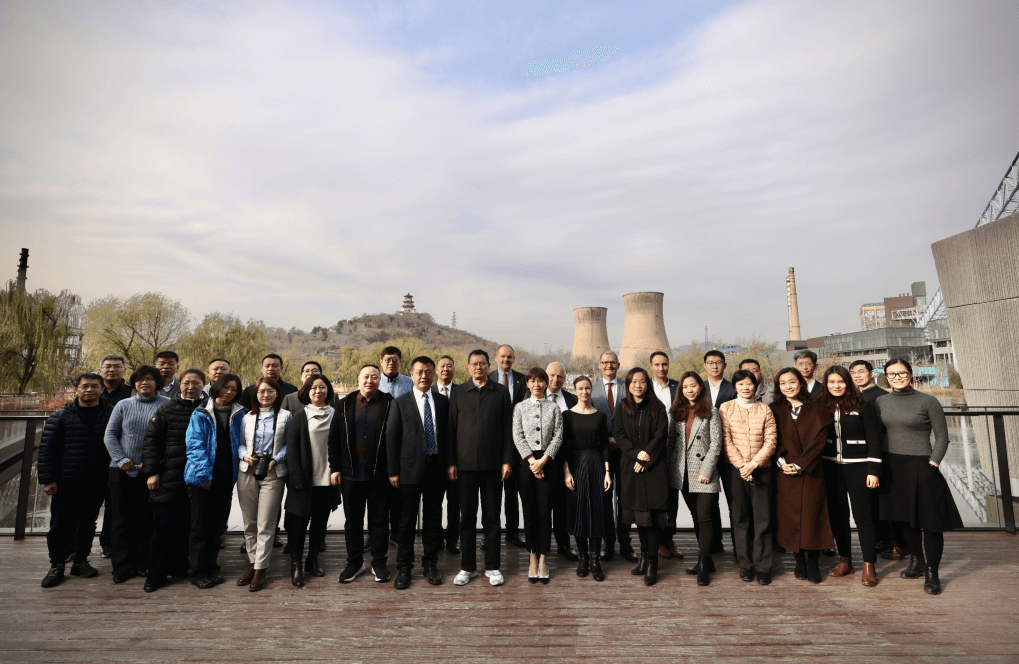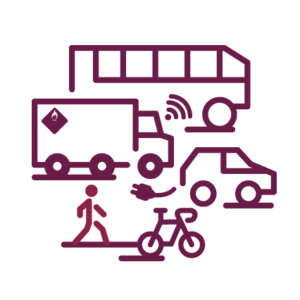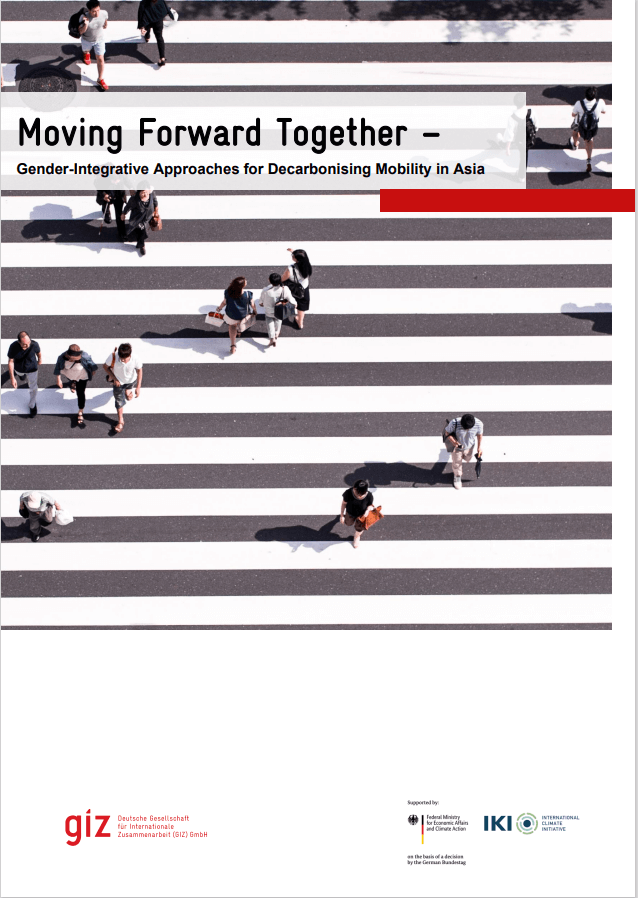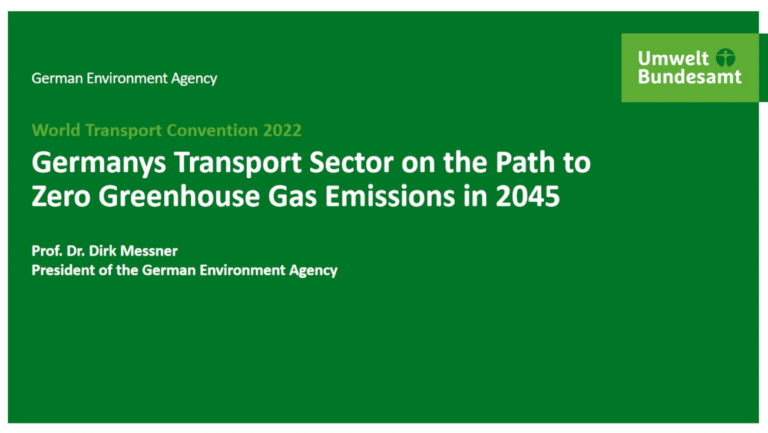Against the background of global climate change, cities around the world are under immense pressure to make their transport systems more sustainable and climate friendly. Electro-mobility, ride-hailing, shared- and micro-mobility, autonomous driving and Big Data-based smart city and traffic management applications are offering opportunities to make transport more efficient and sustainable.
Along with these opportunities comes the increasing unpredictability of how the future of transport and mobility will look like and which climate, environmental and social impacts are associated with these emerging trends. It is therefore of high urgency to have effective policies in place to ensure the climate and environmentally-friendly development of the mobility of tomorrow and to achieve the goals of sustainable development, outlined in global frameworks such as the Nationally Determined Contributions (NDCs) of the Paris Agreement or the Sustainable Development Goals (SDGs) of the 2030 Agenda for Sustainable Development.
In order to discuss the future of sustainable transport and mobility in Beijing, the Beijing Transport Institute BTI, Deutsche Gesellschaft für Internationale Zusammenarbeit (GIZ) GmbH and Agora Verkehrswende jointly initiated the workshop series “The Beijing Dialogue – Future Urban Transport & Mobility”.
The Beijing Dialogue comprises a series of 3 workshops with the following themes:
- Workshop 1 – Vision of Future Urban Transport & Mobility – Green, Intelligent and Shared (November 26-27, 2020)
- Workshop 2 – Infrastructure, Key Technologies and Implementation Roadmap (Mid of 2021)
- Workshop 3 – Presentation Workshop during the World Metropolitan Transport Development Forum in Beijing (End of 2021)
The objective of the Beijing Dialogue workshop series is to actively and deeply explore the vision for Beijing’s future urban transport system through the form of multi-stakeholder dialogue and expert discussion in order to:
- Share ideas and opinions on how to make Beijing’s future urban transport system more sustainable and climate-friendly,
- Explore how to promote and align the roadmap and development goals of Beijing’s short-, medium- and long-term transport system, the SDGs, the climate targets of the Paris Agreement, and “China’s goal of achieving carbon neutrality by 2060”, which was announced by Chinese President Xi Jinping at the General Debate of the 75th session of the UN General Assembly,
- Provide recommendations and references to policy makers and other relevant stakeholders in form of a White Paper,
- Promote exchange and ideas on future urban transport related pilot projects, and public-private cooperation formats on low carbon transport development.
The first workshop of the Beijing Dialogue with the theme “Vision of Future Urban Transport & Mobility – Green, Intelligent and Shared” took place from 26. to 27. November 2020. In the event, 30 policymakers, scholars, technical experts, and industry representatives from the fields of climate-policy, transport, urban development and energy came together in the Shougang Industry Park in the West of Beijing. The Shougang Industry Park, the city’s former largest steel plant, is currently transformed into a creative industry and culture park, representing the positive transformation, which is needed for the transport sector.
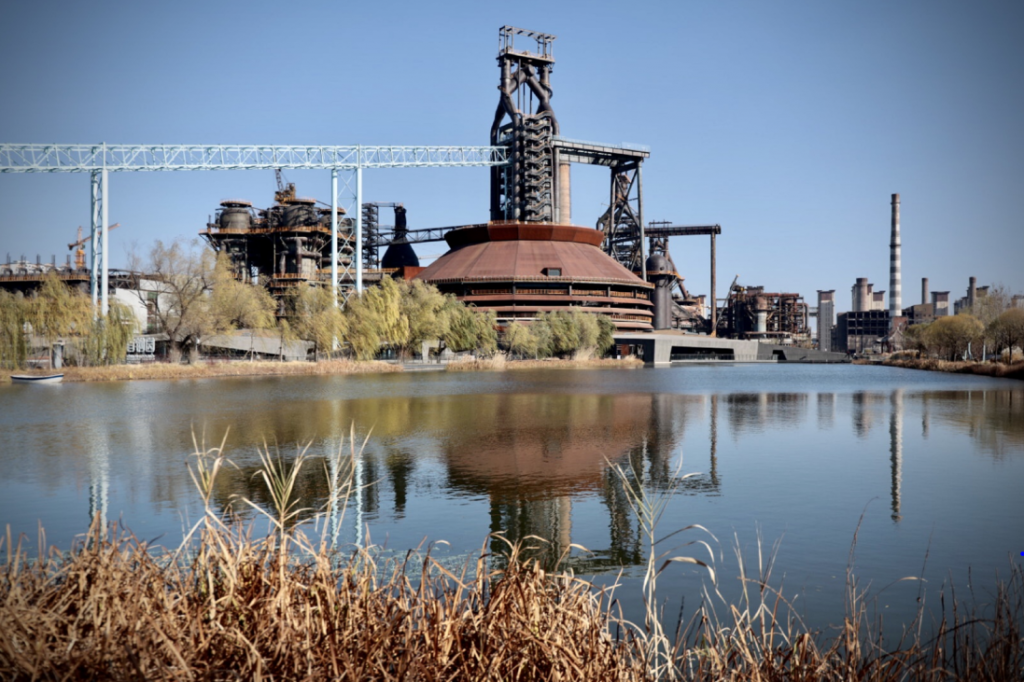
The workshop started with various welcome and keynote speeches. Among the keynote speakers were Mr. Lu Fuquan, committee member of the Beijing Municipal Commission of Transport (BMCT), Dr. Anita Breyer, Director General of Department IG of the Federal Ministry of the Environment, Nature Conservation, and Nuclear Safety (BMU), Mr. Niall Leonard, First Counsellor (Transport and Mobility) of the EU Delegation to China, Mr. Thorsten Giehler, Country Director of GIZ China, and Ms. Natalie Zange of the German Embassy to China.
“We need to find effective solutions for solving the most pressing problems: growing cities and continuing urbanization, increasing motorization, resulting congestion, air pollution, greenhouse gas emissions, road accidents, and also traffic noise – all impacting the health of people and the environmental and economic performance of the city.”
Thorsten Giehler, Country Director GIZ China
The speakers highlighted the importance of international cooperation and exchange on roadmaps, approaches and measures needed to make cities and transport systems in China, the European Union and Germany green and climate friendly. The speakers further highlighted the achievements and innovative approaches of Beijing to sustainable mobility including the carbon credit-based Mobility-as-a-Service and the subway reservation pilot projects. Mr. Christian Hochfeld, Managing Director of the German Think Tank Agora Verkehrswende, presented on the German approaches towards a climate-neutral Germany, highlighting three steps for achieving climate neutrality by 2050 and an intermediate target of -65 percent in 2030 as part of the EU Green Deal.
“Only with the Verkehrswende (Transport transition) we will reach the goals of the Paris Agreement.”
Christian Hochfeld, Managing Director Agora Verkehrswende
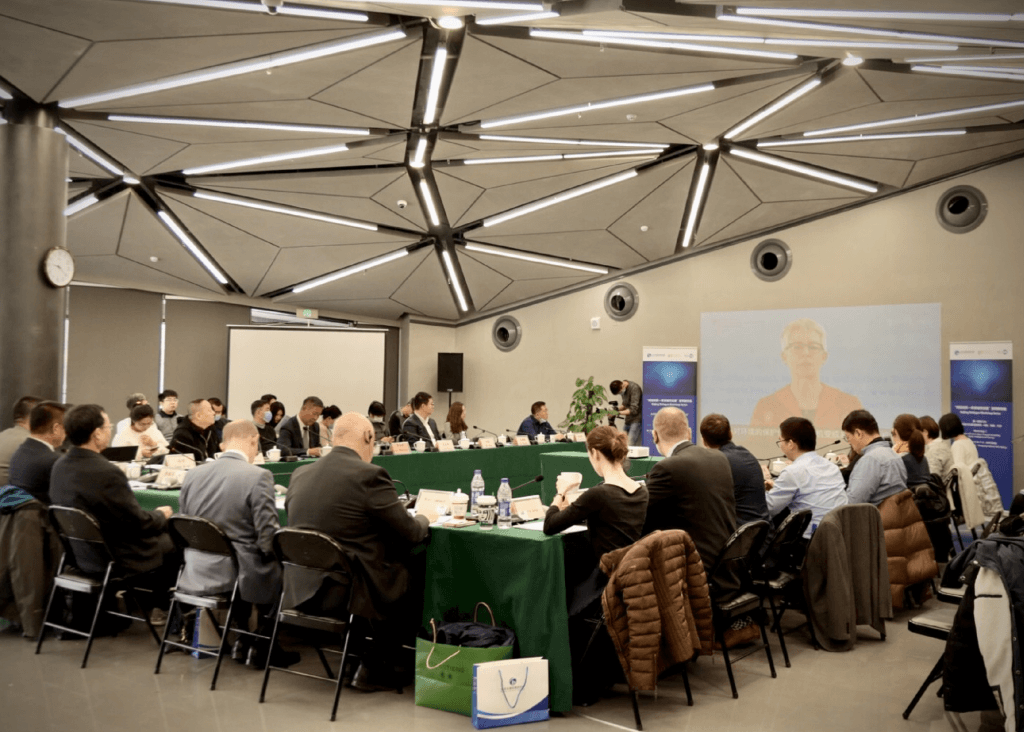
Following the welcome speeches, over the course of 2 days, the experts in 5 roundtable sessions discussed scenarios and roadmaps to decarbonize transport in China and Beijing. Topics of the discussion were the future urban development direction of Beijing, the impacts of the ageing society and changes of family structures to future transport demand, the future and implications of intelligent transport systems, autonomous driving and shared mobility and the measures needed to exploit opportunities for sustainable development and to mitigate potential risks of technology and innovation.
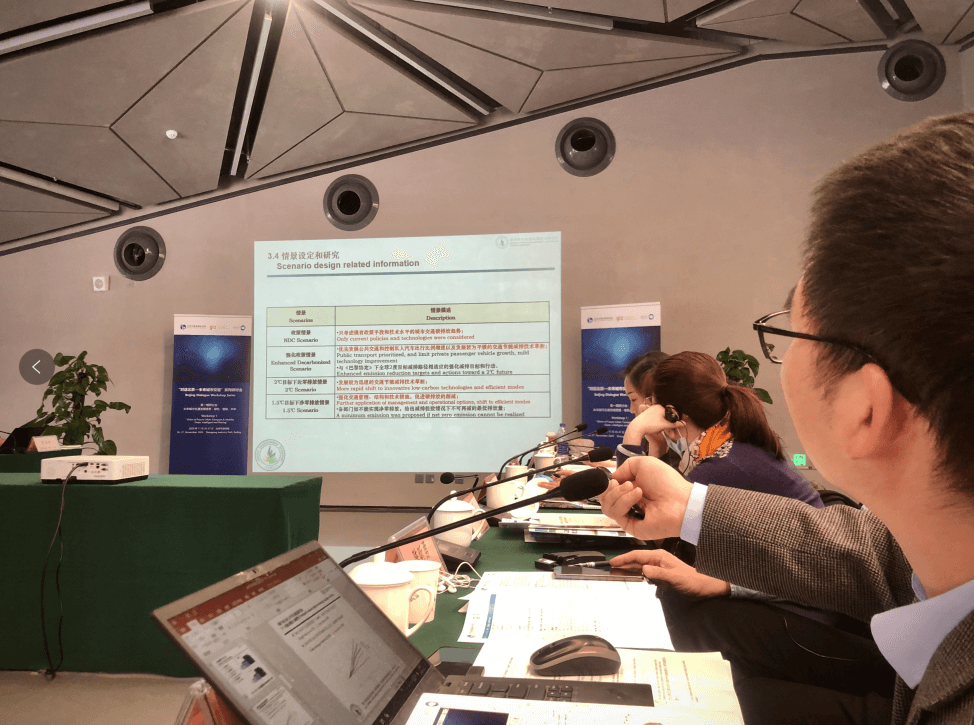
Among the experts were Mr. Guo Jifu, Director of the Beijing Transport Institute (BTI), Mr. Jiang Kejun of the Energy Research Institute (ERI) of National Development and Reform Commission (NDRC), Mr. Guan Jizhen of the China Intelligent Transportation Association, Mr. Gong Huiming of the Energy Foundation China, Prof. Ou Xunmin of the Institute of Energy, Environment and Economy, Tsinghua University, Mr. He Peng of the World Economic Forum, Mr. Chen Xinyong of The International Council on Clean Transportation (ICCT), Ms. Xue Lulu of the World Resources Institute (WRI), Ms. Ma Luyao of SinoCarbon, Mr. Zhang Hailin of Baidu, Ms. Yao Xiaorong of BMW and Mr. Li Zeyu of Shouqi Limousine & Chauffeur.
The messages of the experts were clear: The future of Beijing’s transport system is green, intelligent and shared! Beijing has made great achievements including the massive expansion of the city’s public transport infrastructure in recent years and the electrification of the city’s public bus fleet. But at the same time, challenges such as traffic congestion, transport-related air pollution or lacking integration of different transport modes remain. In order to build up on the achievements and to deliver on President Xi Jinping’s pledge to reach emission peak by 2030 and to make China carbon neutral by 2060, further ambitious measures need to be implemented and a more rapid shift to innovative low-carbon technologies and efficient and green modes is necessary.
Among the many statements made by the experts, following 10 key results of the workshop were outlined as pillars of the vision for Beijing’s future transport and mobility system:
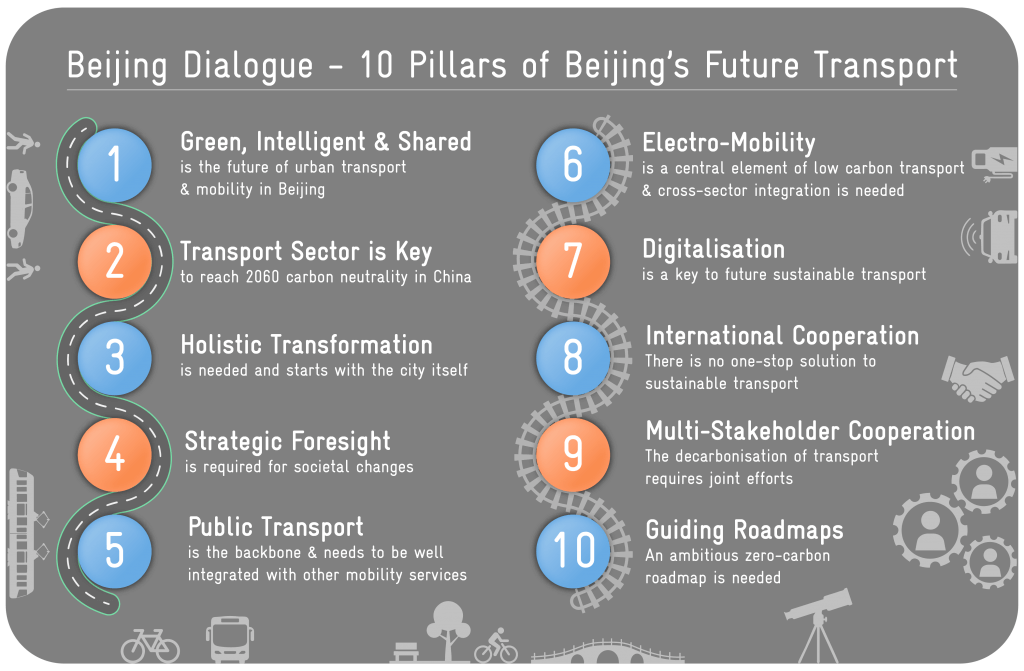
1. The future of urban transport and mobility in Beijing is green, intelligent and shared! Beijing’s future transport system shall be green (climate- and environment-friendly and resource saving), intelligent (efficient, seamless, integrated and innovative), and shared (diverse, socially balanced, accessible, barrier-free and safe).
2. The transport sector is key to reach 2060 carbon neutrality in China! To decarbonize the economy, we need to decarbonize transport. Beijing can build up on various achievements and innovative approaches and has a leading role in implementing and showcasing the measures needed to make transport more climate-friendly and sustainable.
3. A holistic transformation is needed and starts with the city itself! The zero-carbon transition of the transport sector including both passenger and urban freight transport starts with the zero-carbon transition of the city as a whole – the full integration of urban and transport planning and development is needed and the “15-minute urban community life circle” is a good reference.
4. Societal changes need strategic foresight! The barrier-free development of transport and the city as whole is crucial to increase accessibility and to reduce trips and thus emissions. The ageing society and changes in family structures require analytical assessment on the impacts to future transport demand and transport system development.
5. Public transport is the backbone and needs to be well integrated with other mobility services! Public transport, shared mobility, walking and cycling, and autonomous driving all play key roles in Beijing’s future green transport roadmap – Key to success is the sustainable integration of different modes with public transport as the backbone and the promotion of behavioral change towards sustainable mobility behavior.
6. Electro-mobility is a central element of low carbon transport and cross-sector integration is needed! The electrification of road transport both urban passenger and freight transport along with a further greening of the grid and expansion of charging infrastructure and smart vehicle-to-grid solutions is crucial to lower both greenhouse gas and air pollutant emissions. The full integration of the energy, transport and information sectors is needed in order to fully exploit system efficiency potentials. This includes vehicle-to-grid, smart charging and connected vehicle infrastructure development among others.
7. Digitalization is a key to future sustainable transport! Innovative digital solutions, intelligent and Big Data-based traffic management are key to make urban transport seamless and climate-friendly but strong regulatory frameworks are needed to ensure data privacy and safety, and to make the digital transformation safe and sustainable.
8. International exchange and cooperation are needed! There is no one-stop solution to sustainable transport – cities in China, the EU and Germany can learn from each other and should cooperate to find suitable and sustainable solutions for the low carbon transport transition.
9. Multi-stakeholder cooperation is needed! The decarbonization of transport requires joint efforts – the government, the private sector, academia and citizens need to jointly pave the way to a green and sustainable future transport system and mobility behavior. Multi-stakeholder dialogues are needed to support joint coordination.
10. Guiding roadmaps are crucial! An ambitious zero-carbon roadmap is needed – the future development of the transport system requires the systematic and scientific guidance towards zero emissions.
A short movie about the first workshop of the Beijing Dialogue can be found here.The results will also be summarized in a workshop report. The report will provide important reference for government policymaking and will function as an important foundation for the second workshop with the theme “Key Infrastructures and Technologies for Future Urban Transport & Mobility”, which will take place beginning of 2021 in Beijing.
In case you would like to know more about the Beijing Dialogue, please contact:
BTI: Ms. Liang Xiaohong liangxh@bjtrc.org.cn
GIZ: Mr. Sebastian Ibold Sebastian.ibold@giz.de
Agora Verkehrswende: Mr.Christian Hochfeld christian.hochfeld@agora-verkehrswende.de

